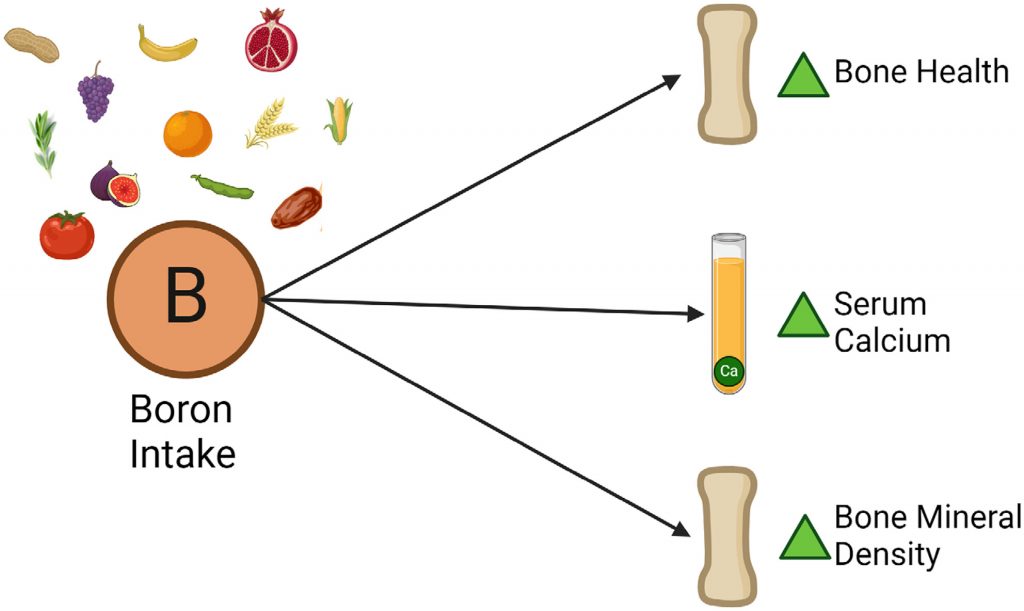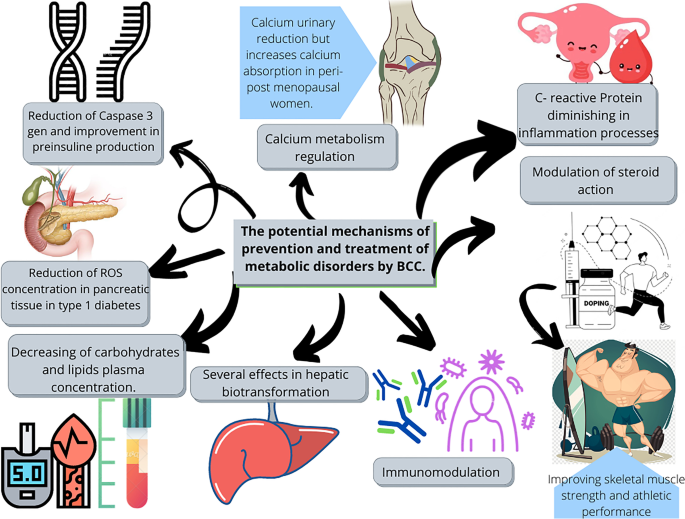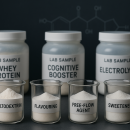In the world of supplements and health, we tend to hear a lot about Magnesium for sleep, Calcium for strong bones, Iron for energy, and Zinc for immune support.
However, there is a quiet and lesser-known mineral with remarkable health benefits: Boron.
This humble trace mineral quietly plays a critical role in bone strength, hormone balance, brain function, and the management of inflammation.
I think that it may be one of the most underrated nutrients in modern nutrition.
In this article, we take a look at the science behind boron, its benefits, food sources, and why it might be worth a spot in your supplement stack.
My personal story with Boron
As with most supplements, my journey with Boron began when I was a curious teenager fueled by an insane enthusiasm for supplements for two key objectives: to build muscle and be sharper at school.
It was during this search that I came across an intriguing claim in the pages of FLEX magazine: Boron could potentially elevate testosterone levels. Pages after pages in the magazines contained Boron supplement ads touting its testosterone-boosting benefits.
This led me to a mission to harness the power of Boron!
I learned that red apples, something so ordinary, had Boron in them. So, I decided to eat lots of red apples, thinking it would help me achieve my goals.
However, I learned the hard way that too much of a good thing can be bad. I ate so many apples that I actually got sick and to this day, I don’t eat apples.
It was an early lesson in the importance of balance and not going to extremes.
But my Boron journey didn’t stop there.
As I grew up and got into making products, I made sure to include Boron in my formulations whenever it made sense.
In the paragraphs ahead, we will explore Boron’s many benefits, learn how it affects hormones, helps with strong bones, and much more.
Boron might not be famous, but its story is fascinating, and its importance in our health is real!
Bone Health and Joint Support
One of boron’s most well-documented roles is its contribution to bone health:
-
Boron supports the metabolism of calcium, magnesium, and vitamin D, three nutrients that are vital for bone density.
-
Boron reduces the excretion of calcium and magnesium in urine, helping retain these minerals in the body
-
In both postmenopausal women and older adults, boron has shown promise in maintaining bone mineral density and preventing bone loss (Taha Rababah et al., 2024).
Additionally, boron may reduce the symptoms of osteoarthritis. Several small studies have reported that boron supplementation improved joint comfort, possibly by reducing inflammatory markers such as C-reactive protein (CRP).

Boron and Hormonal Balance
While not a hormone itself, boron acts as a modulator of hormone activity, and this makes it particularly interesting in the context of sports performance, aging, and reproductive health.
Boron modulates steroid hormone levels in both sexes:
-
In postmenopausal women, boron supplementation doubled estradiol levels and more than doubled testosterone—especially when magnesium intake was suboptimal (Nielsel et al., 1987)
-
In healthy men, 6 mg/day for just 1 week significantly increased free testosterone (from 11.83 to 15.18 pg/mL) and reduced estradiol levels (from 42.3 to 25.8 pg/mL), along with reductions in inflammatory markers (hs-CRP, TNF-α, IL-6). (Naghii et al, 2011)
These effects likely reflect boron’s inhibition of microsomal hydroxylase enzymes that break down steroid hormones like estradiol and testosterone. By slowing catabolism, boron extends the biological half-life of these hormones, thereby increasing their physiological activity.
Importantly, boron improves the free testosterone to total testosterone (FT/T) and testosterone to estradiol (T/E2) ratios—metrics associated with better hormonal function and reproductive health.
Cognitive and Neurological Benefits
Emerging evidence also points to boron’s role in brain function:
-
Animal and human studies suggest that boron deficiency impairs attention, short-term memory, and motor coordination.
-
Boron may affect the activity of brain waves associated with cognitive performance and alertness.
-
It could influence neurotransmitter function, particularly those involved in mood and mental clarity.
Though more research is needed, early findings suggest boron might support cognitive health, especially during aging.
Anti-Inflammatory Effects
One of the more exciting areas of boron research is its potential to suppress inflammation:
-
Boron may inhibit pro-inflammatory enzymes such as cyclooxygenase (COX) and lipoxygenase (LOX).
-
It has been associated with lower levels of inflammatory biomarkers such as interleukin-6 (IL-6) and CRP.
-
In conditions like arthritis, boron’s anti-inflammatory properties could be part of its pain-reducing effect.
Chronic inflammation is at the root of many degenerative diseases, so this makes boron a mineral worth watching.

How to get your Boron
Typical dietary boron intake ranges from 1–3 mg/day, but research shows that supplementing with 3–10 mg/day can deliver therapeutic effects, particularly for bone health, hormonal balance, and inflammation.
Forms used in supplements include boron citrate, boron glycinate, and borax-derived compounds (not to be confused with industrial borax).
Boron is generally considered safe at moderate doses, but excessive intake (>20 mg/day) may cause toxicity. As with any supplement, speak to a healthcare professional before starting boron, especially if you have kidney conditions or take hormonal medication.
Food sources of Boron are given in the table below.

A Small Mineral with Big Potential
Boron may be the unsung hero of mineral nutrition but it is a trace nutrient with wide-reaching effects on the body. As we have seen, Boron is far more than a background player.
As research grows, boron may soon earn its place alongside the better-known minerals in mainstream health conversations. Until then, don’t underestimate this mineral marvel as it just might be the missing piece in your wellness puzzle.
Meanwhile, as a formulator, I am making sure boron is included in my formulations to ensure this mineral marvel finds its way into the hands (and health) of those who need it most.
References
Nielsen, F.H., Hunt, C.D., Mullen, L.M. and Hunt, J.R., 1987. Effect of dietary boron on mineral, estrogen, and testosterone metabolism in postmenopausal women. The FASEB Journal, 1(5), pp.394–397. Available at: https://pubmed.ncbi.nlm.nih.gov/3678698/
Naghii, M.R., Mofid, M., Asgari, A.R., Hedayati, M. and Daneshpour, M.S., 2011. Comparative effects of daily and weekly boron supplementation on plasma steroid hormones and proinflammatory cytokines. Journal of Trace Elements in Medicine and Biology, 25(1), pp.54–58. Available at: https://pubmed.ncbi.nlm.nih.gov/21129941/
To view my Professional Profile on LinkedIn:please click here
To see my latest product creations: www.bioteenhealth.com
To view my Scientific Publications on PubMed:please click here
To get in touch, please write to: info@supplementscientist.com
Follow supplementscientist.com on Facebook: please click here
Disclaimers
Medical: The information presented on this website is intended for adults 18 or over. Its aim is purely educational and does not constitute medical advice. Please consult a medical or health professional before you begin any program related to exercise, nutrition, or supplementation especially if you have a medical condition. If you consume any product mentioned on our site, you do so on your own free will, and you knowingly and voluntarily accept the risks.
Other: The views expressed in this blog article are solely mine and do not represent the opinions or positions of any company or institution with which I am associated. Any information or opinions provided are based on my personal experiences, research, and understanding. I strive to ensure accuracy and reliability of the information provided.
© 2025. Supplementscientist.com








Leave a Reply